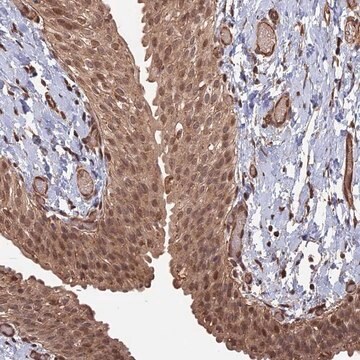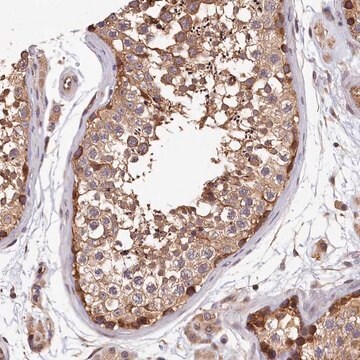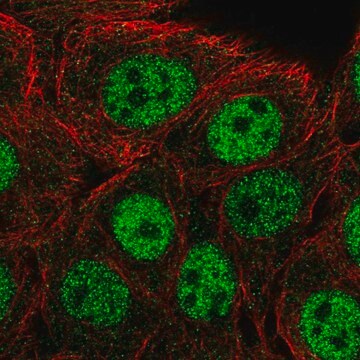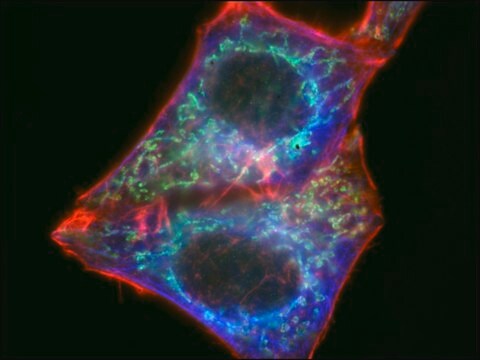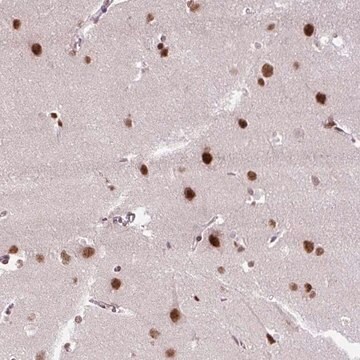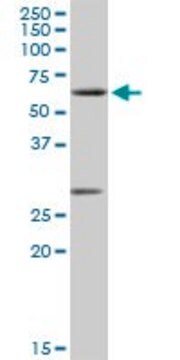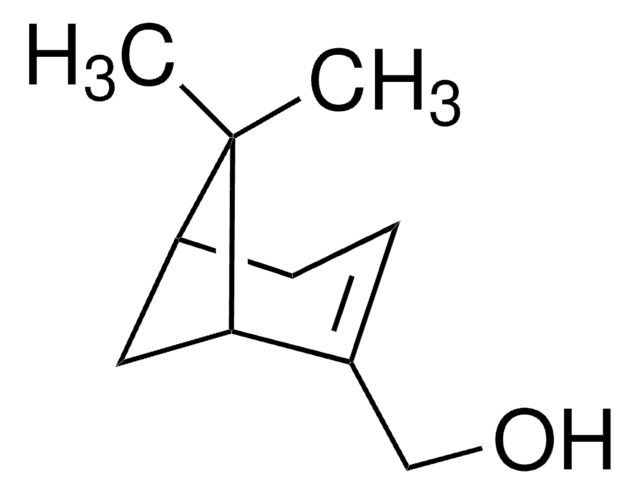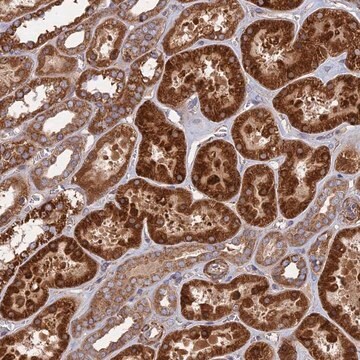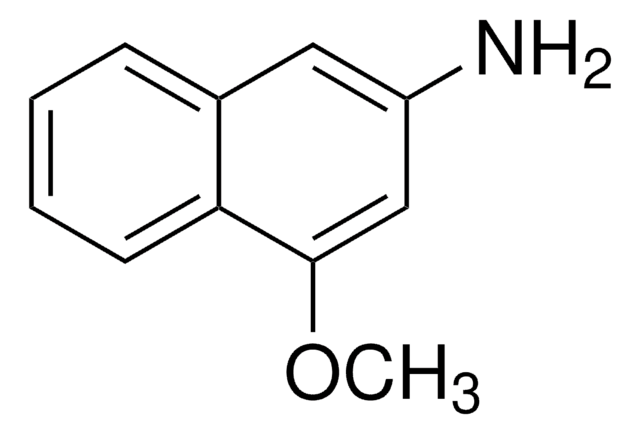ABN2290
Anti-LHFPL5
Sinonimo/i:
LHFPL tetraspan subfamily member 5 protein, Lipoma HMGIC fusion partner-like 5 protein, Tetraspan membrane protein of hair cell stereocilia
About This Item
WB
western blot: suitable
Prodotti consigliati
Origine biologica
rabbit
Livello qualitativo
Forma dell’anticorpo
purified antibody
Tipo di anticorpo
primary antibodies
Clone
N/A, polyclonal
PM
calculated mol wt 24.2 kDa
Reattività contro le specie
human
Reattività contro le specie (prevista in base all’omologia)
monkey
Confezionamento
antibody small pack of 100 μL
tecniche
immunocytochemistry: suitable
western blot: suitable
Isotipo
IgG
Sequenza dell’epitopo
C-terminal
N° accesso ID proteina
N° accesso UniProt
Temperatura di conservazione
-10 to -25°C
Informazioni sul gene
human ... LHFPL5(222662)
Descrizione generale
Specificità
Immunogeno
Applicazioni
Evaluated by Immunocytochemistry in HeLa cells.
Immunocytochemistry Analysis: A 1:50 dilution of this antibody detected LHFPL5 in HeLa cells.
Tested applications
Western Blotting Analysis: A representative lot detected LHFPL5 in Western Blotting applications (Yu, Z., et. al. (2020). Proc Natl Acad Sci USA. 117(47); 29894-29903).
Western Blotting Analysis: A 1:1,000 dilution from a representative lot detected LHFPL5 in HEK293 cells transfected with LHFPL5 (TMHS) protein.
Immunocytochemistry Analysis: A representative lot detected LHFPL5 in Immunocytochemistry applications (Yu, Z., et. al. (2020). Proc Natl Acad Sci USA. 117(47); 29894-29903).
Note: Actual optimal working dilutions must be determined by end user as specimens, and experimental conditions may vary with the end user.
Stato fisico
Stoccaggio e stabilità
Altre note
Esclusione di responsabilità
Non trovi il prodotto giusto?
Prova il nostro Motore di ricerca dei prodotti.
Codice della classe di stoccaggio
11 - Combustible Solids
Classe di pericolosità dell'acqua (WGK)
WGK 1
Certificati d'analisi (COA)
Cerca il Certificati d'analisi (COA) digitando il numero di lotto/batch corrispondente. I numeri di lotto o di batch sono stampati sull'etichetta dei prodotti dopo la parola ‘Lotto’ o ‘Batch’.
Possiedi già questo prodotto?
I documenti relativi ai prodotti acquistati recentemente sono disponibili nell’Archivio dei documenti.
Il team dei nostri ricercatori vanta grande esperienza in tutte le aree della ricerca quali Life Science, scienza dei materiali, sintesi chimica, cromatografia, discipline analitiche, ecc..
Contatta l'Assistenza Tecnica.